March 31 stands as one of history’s most eventful days, witnessing the rise and fall of empires, groundbreaking discoveries, and moments that shaped our modern world across centuries of human achievement.
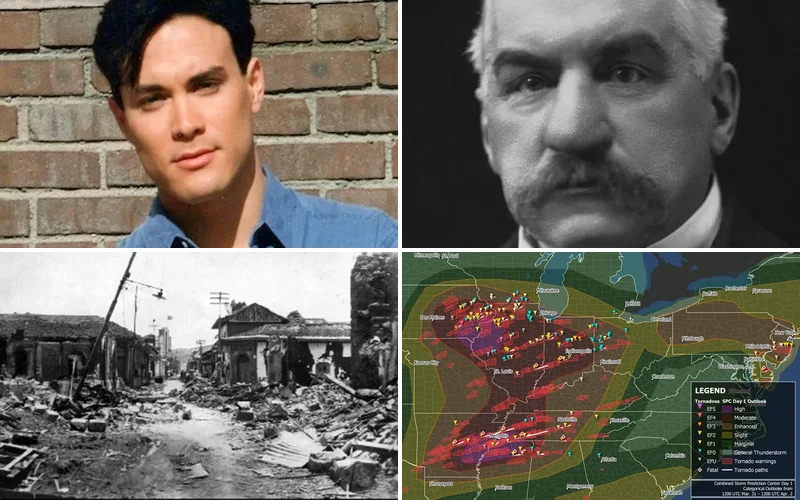
Politics and Government Events on March 31
1905 – First Moroccan Crisis Begins
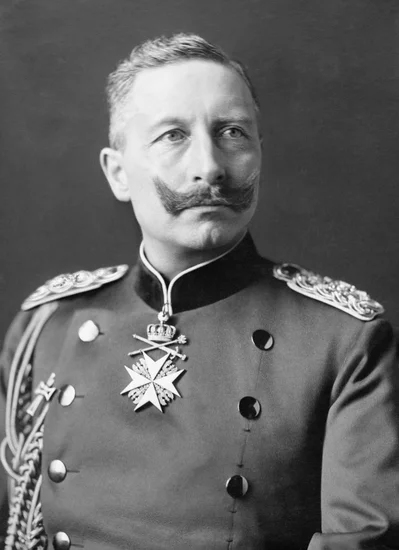
Kaiser Wilhelm II of Germany declared his support for Moroccan independence in Tangier, triggering a major international diplomatic crisis. His bold proclamation directly challenged French colonial ambitions in North Africa.
The crisis escalated tensions between European powers and brought the continent closer to war. This diplomatic confrontation marked a crucial step toward the alliance system that would define World War I.
1917 – Danish West Indies Become American Territory
The Danish West Indies officially transferred to American control according to the Treaty of the Danish West Indies. The United States paid Denmark $25 million for the strategic Caribbean islands.
These islands, renamed the U.S. Virgin Islands, provided America with crucial naval bases in the Caribbean. The acquisition strengthened American influence in the region during World War I.
1949 – Newfoundland Joins Canada
The Dominion of Newfoundland officially joined the Canadian Confederation as the country’s tenth province. This historic union ended Newfoundland’s centuries-old independent status.
The decision followed intense political debates and a narrow referendum victory. Newfoundland’s inclusion completed Canada’s eastern maritime territory and expanded its Atlantic fishing grounds.
1958 – Diefenbaker Wins Canadian Landslide
Progressive Conservative leader John Diefenbaker achieved the largest electoral victory in Canadian history, winning 208 seats of 265. His party captured an unprecedented percentage of parliamentary seats.
The massive victory gave Diefenbaker a powerful mandate to implement his vision for Canada. His triumph marked a decisive shift in Canadian political landscape during the Cold War era.
1968 – Johnson Abandons Presidential Campaign
President Lyndon B. Johnson shocked the nation by announcing he would not seek reelection during a televised address about Vietnam War limitations. His unexpected withdrawal transformed the 1968 presidential race.
Johnson’s decision reflected growing opposition to the Vietnam War and his declining political support. The announcement opened the door for other Democratic candidates and reshaped American politics.
1991 – Georgian Independence Referendum
Nearly 99 percent of Georgian voters supported independence from the Soviet Union in a decisive referendum. The overwhelming margin demonstrated unified opposition to continued Soviet rule.
Georgia’s independence vote contributed to the Soviet Union’s accelerating collapse. The referendum results paved the way for Georgia’s emergence as an independent nation.
1991 – Warsaw Pact Formally Dissolves
The Warsaw Pact military alliance officially disbanded, ending the Soviet-led counterpart to NATO. This dissolution marked the definitive end of the Cold War’s bipolar military structure.
The pact’s dissolution liberated Eastern European nations from Soviet military control. Former Warsaw Pact members gained freedom to pursue their own security arrangements and eventual NATO membership.
2018 – Armenian Revolution Begins

Mass protests erupted across Armenia, initiating the Velvet Revolution that would topple the government. Citizens demanded democratic reforms and an end to corruption.
The peaceful revolution demonstrated the power of popular movements in post-Soviet states. Armenia’s democratic transformation inspired similar movements throughout the region.
Military and Naval History on March 31
1918 – Massacre of Azerbaijani Muslims
Allied Armenian Revolutionary Federation and Bolshevik forces committed a devastating massacre against ethnic Azerbaijanis. Nearly 12,000 Azerbaijani Muslims lost their lives in the systematic violence.
The massacre occurred during the chaotic final months of World War I in the Caucasus region. This tragic event deepened ethnic tensions that would plague the region for decades.
1942 – Japanese Forces Invade Christmas Island
Japanese military forces launched their invasion of Christmas Island, then under British colonial control. The assault expanded Japan’s Pacific territorial conquests during World War II.
The island’s strategic location provided Japan with another staging point for further operations. Christmas Island’s capture demonstrated Japan’s continued offensive capabilities in the Pacific theater.
1945 – First Jet Fighter Delivered to Allies
A defecting German pilot delivered a revolutionary Messerschmitt Me 262A-1 jet fighter to American forces. This marked the first operational jet aircraft to fall into Allied hands.
The advanced aircraft provided crucial intelligence about German jet technology. Allied engineers studied the captured fighter to accelerate their own jet aircraft development programs.
1992 – USS Missouri Decommissioned
The USS Missouri, America’s last active battleship, was officially decommissioned at Long Beach, California. The mighty warship had served with distinction since World War II.
The Missouri’s decommissioning marked the end of the battleship era in naval warfare. Modern missile technology and aircraft carriers had rendered these massive gun platforms obsolete.
Science and Discovery Milestones on March 31
1951 – First UNIVAC Computer Delivered
Remington Rand delivered the groundbreaking UNIVAC I computer to the United States Census Bureau. This massive machine represented a revolutionary leap in computational capability.
The UNIVAC I weighed over 13,000 pounds and contained thousands of vacuum tubes. Its installation marked the beginning of the computer age in government and business operations.
1966 – Luna 10 Launched to Moon
The Soviet Union successfully launched Luna 10, which became the first spacecraft to orbit the Moon. This achievement marked another Soviet milestone in the space race.
Luna 10’s orbital mission provided unprecedented data about lunar conditions and gravitational fields. The successful mission demonstrated Soviet capabilities in deep space navigation and control.
1970 – Explorer 1 Re-enters Earth’s Atmosphere

America’s first satellite, Explorer 1, re-entered Earth’s atmosphere after twelve years in orbit. The satellite had launched the United States into the space age in 1958.
Explorer 1’s long orbital life provided valuable data about space conditions and satellite durability. Its final descent marked the end of an era in early space exploration.
2005 – Dwarf Planet Makemake Discovered
Astronomer Michael E. Brown’s team discovered the dwarf planet Makemake using the Palomar Observatory. This distant celestial body expanded our understanding of the outer solar system.
Makemake’s discovery contributed to the reclassification of Pluto and the creation of the dwarf planet category. The finding demonstrated that our solar system contained more complexity than previously understood.
2016 – Year-Long Space Mission Concludes
NASA astronaut Scott Kelly and Russian cosmonaut Mikhail Kornienko returned to Earth after spending nearly a year aboard the International Space Station. Their extended mission provided crucial data about long-duration spaceflight effects.
The year-long mission tested human endurance for future Mars expeditions. Kelly’s biological changes during the mission offered valuable insights into space medicine and human adaptation.
Cultural and Arts Events on March 31
1901 – Rusalka Opera Premieres
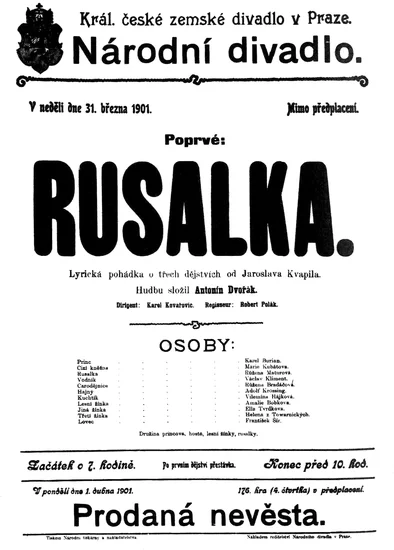
Antonín Dvořák’s opera “Rusalka” premiered at the National Opera House in Prague to tremendous acclaim. The production showcased Czech musical artistry at its finest.
The opera’s haunting melodies and folkloric themes captured the essence of Czech national identity. “Rusalka” became one of the most beloved works in the Czech operatic repertoire.
1913 – Vienna Skandalkonzert Riot
The Vienna Concert Society erupted in violence during a performance of modernist music by Arnold Schoenberg and his contemporaries. The riot forced an early end to the controversial concert.
The violent audience reaction demonstrated the intense resistance to avant-garde musical innovations. This concert became legendary as a symbol of the clash between traditional and modern artistic expression.
1930 – Motion Picture Production Code Instituted
The Motion Picture Production Code imposed strict guidelines on American film content regarding sex, crime, religion, and violence. These regulations would govern Hollywood for thirty-eight years.
The code fundamentally shaped American cinema by establishing moral boundaries for filmmakers. Its influence extended far beyond Hollywood, affecting global perceptions of American values and culture.
1995 – Selena Murdered in Texas

Rising Tejano music star Selena was tragically murdered by her fan club president at a hotel in Corpus Christi, Texas. The shocking crime devastated the Latin music community.
Selena’s death cut short the career of one of Latin music’s most promising artists. Her murder highlighted the dangers faced by celebrities and the dark side of fan obsession.
Religious and Social Events on March 31
1959 – Dalai Lama Flees to India
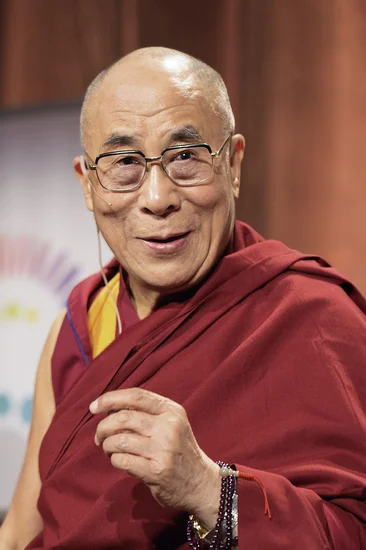
The 14th Dalai Lama crossed the border into India and received political asylum after fleeing the Chinese occupation of Tibet. His dramatic escape marked a turning point in Tibetan-Chinese relations.
The Dalai Lama’s exile brought international attention to Tibet’s plight under Chinese rule. His presence in India established him as a global advocate for Tibetan independence and Buddhist philosophy.
1933 – Civilian Conservation Corps Established
The Civilian Conservation Corps launched with the mission of providing employment to young men during the Great Depression. This New Deal program combined environmental conservation with economic relief.
The corps employed over 2.5 million men who built parks, planted trees, and constructed trails across America. The program demonstrated how government initiatives could address both unemployment and environmental needs.
1990 – London Poll Tax Protests

Approximately 200,000 protesters filled London’s streets to demonstrate against the newly introduced Poll Tax. The massive demonstration reflected widespread opposition to the controversial levy.
The protests eventually contributed to Margaret Thatcher’s downfall as Prime Minister. The Poll Tax riots became a defining moment in British political history and social activism.
Business and Economic Events on March 31
1980 – Rock Island Railroad’s Final Train

The Chicago, Rock Island and Pacific Railroad operated its final train after being ordered to liquidate due to bankruptcy. The historic railroad’s collapse marked the end of an era in American transportation.
The Rock Island’s demise reflected the declining importance of railroads in American commerce. Its liquidation eliminated a crucial transportation link across the American Midwest and Southwest.
1998 – Netscape Releases Open Source Code

Netscape Communications released its Mozilla browser source code under an open source license. This groundbreaking decision revolutionized software development and internet browser competition.
The open source release sparked the development of Firefox and other innovative browsers. Netscape’s decision demonstrated how companies could leverage community development to compete with larger corporations.
Transportation and Infrastructure on March 31
1918 – Daylight Saving Time Begins
Daylight saving time went into effect across the United States for the first time as a wartime conservation measure. The time change aimed to reduce energy consumption during World War I.
The implementation required coordination across multiple time zones and industries. This temporal adjustment became a permanent feature of American life, affecting everything from transportation schedules to agricultural practices.
1931 – Managua Earthquake Destroys Capital
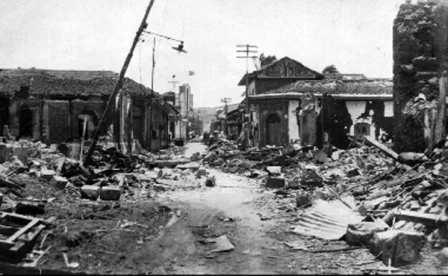
A devastating earthquake struck Nicaragua’s capital city of Managua, killing approximately 2,000 people and destroying much of the urban infrastructure. The disaster required massive reconstruction efforts.
The earthquake’s destruction forced Nicaragua to rebuild its capital with modern engineering techniques. International aid poured in to help reconstruct the devastated city and its transportation networks.
1931 – Knute Rockne Dies in Plane Crash
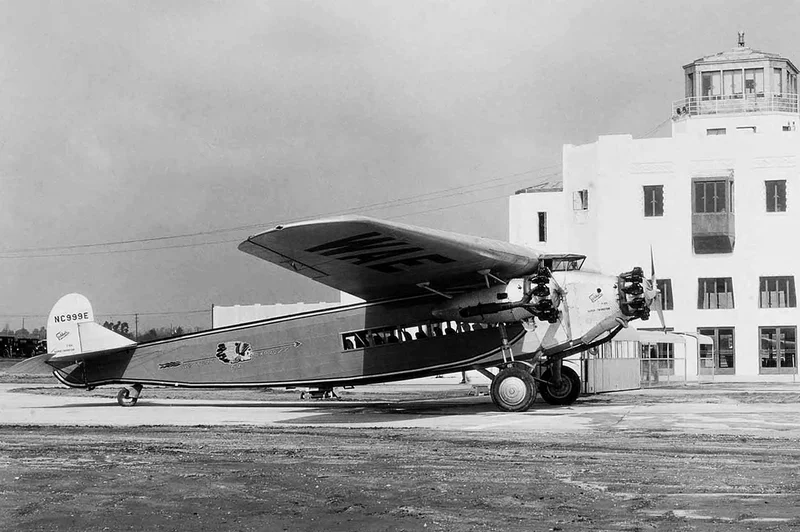
A Transcontinental & Western Air flight crashed near Bazaar, Kansas, killing eight passengers including legendary Notre Dame football coach Knute Rockne. The aviation accident shocked the sports world.
Rockne’s death highlighted the dangers of early commercial aviation. The tragedy led to improved safety regulations and investigation procedures for the growing airline industry.
Sports and Recreation on March 31
1906 – NCAA Established
The Intercollegiate Athletic Association of the United States, later renamed the National Collegiate Athletic Association, was established to regulate college sports. The organization aimed to standardize rules and ensure fair competition.
The NCAA’s formation addressed growing concerns about violence and corruption in college athletics. Its establishment created the framework for modern American collegiate sports governance.
1921 – Royal Australian Air Force Formed
The Royal Australian Air Force officially formed as an independent military service branch. This establishment marked Australia’s recognition of aviation’s growing importance in national defense.
The RAAF’s creation positioned Australia as a significant air power in the Pacific region. The force would play crucial roles in both World Wars and subsequent regional conflicts.
2023 – Historic Tornado Outbreak
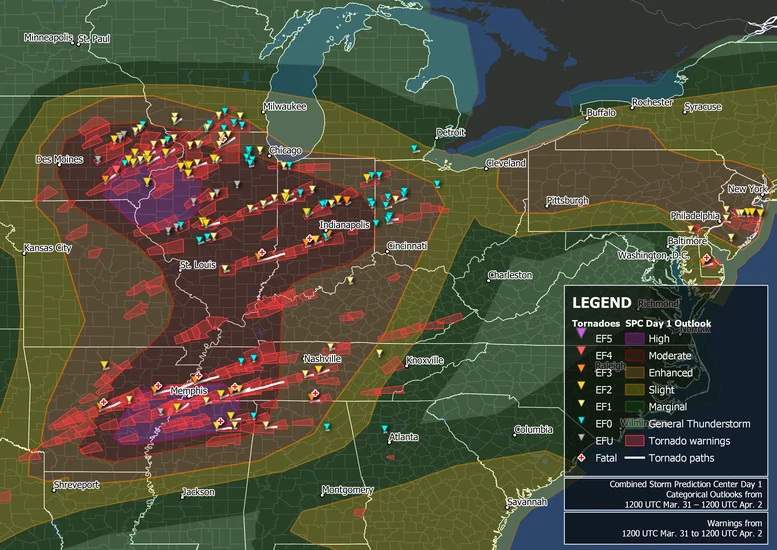
A devastating tornado outbreak struck the American Midwest and South, producing multiple violent tornadoes across several states. The severe weather event caused extensive damage and numerous casualties.
The outbreak demonstrated the increasing intensity of extreme weather events. Advanced weather prediction systems provided crucial warnings that saved countless lives during the disaster.
Notable Births on March 31
1905 – Sin-Itiro Tomonaga Born

Japanese physicist Sin-Itiro Tomonaga entered the world, destined to become a Nobel Prize laureate. His early fascination with quantum mechanics shaped his groundbreaking scientific career.
Tomonaga would later develop fundamental theories in quantum electrodynamics. His contributions to theoretical physics earned him international recognition and the Nobel Prize in Physics.
1914 – Octavio Paz Born
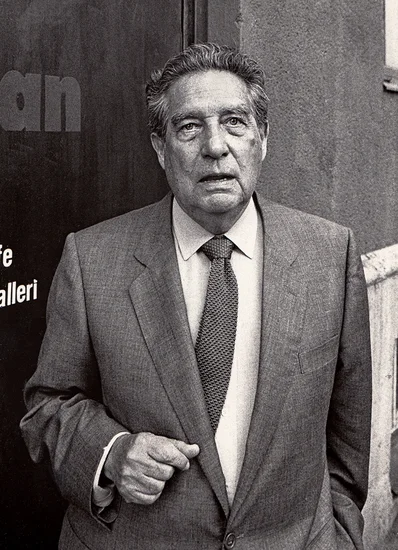
Mexican poet and diplomat Octavio Paz was born, beginning a life that would bridge literature and international relations. His literary talents emerged during his youth in Mexico City.
Paz would become one of Latin America’s most celebrated poets and eventually win the Nobel Prize in Literature. His diplomatic career took him around the world, enriching his poetic perspective.
1927 – Cesar Chavez Born

American labor leader Cesar Chavez was born into a family of migrant farm workers. His childhood experiences with agricultural labor shaped his lifelong commitment to workers’ rights.
Chavez would organize the United Farm Workers union and lead historic strikes for better working conditions. His nonviolent activism transformed labor relations in American agriculture.
1928 – Gordie Howe Born

Canadian ice hockey legend Gordie Howe was born in Floral, Saskatchewan. His exceptional athletic abilities became apparent during his youth in rural Canada.
Howe would become known as “Mr. Hockey” during his record-breaking NHL career. His longevity and skill made him one of the most respected players in hockey history.
1948 – Al Gore Born

American politician Al Gore was born in Washington, D.C., into a political family. His father’s Senate career exposed him to government service from an early age.
Gore would serve as Vice President under Bill Clinton and later become a prominent environmental advocate. His work on climate change earned him the Nobel Peace Prize.
1971 – Ewan McGregor Born

Scottish actor Ewan McGregor was born in Perth, Scotland. His early interest in drama led him to pursue acting training at the Guildhall School of Music and Drama.
McGregor would achieve international fame through diverse film roles, including the Star Wars prequel trilogy. His versatility as an actor earned him critical acclaim across multiple genres.
Notable Deaths on March 31
1913 – J.P. Morgan Dies

American banker and financier J.P. Morgan died after dominating American finance for decades. His passing marked the end of an era in American capitalism and banking.
Morgan had consolidated numerous industries and rescued the U.S. economy multiple times during financial panics. His death left a void in American financial leadership that would reshape the banking industry.
1931 – Knute Rockne Dies

Legendary Notre Dame football coach Knute Rockne perished in a plane crash, shocking the sports world. His death ended one of the most successful coaching careers in college football history.
Rockne had revolutionized football strategy and inspired countless players with his motivational speeches. His tragic death became a defining moment in American sports history.
1980 – Jesse Owens Dies
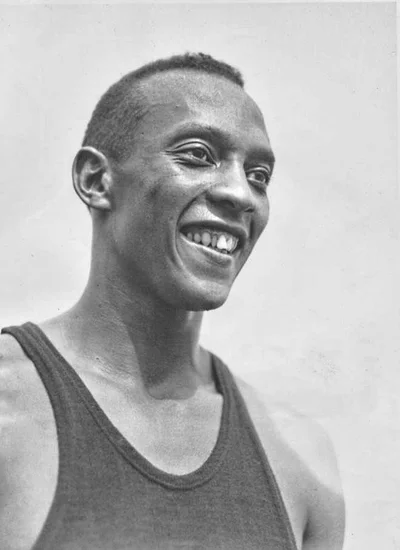
Olympic champion Jesse Owens died after a life that transcended sports and challenged racial barriers. His passing marked the end of an extraordinary journey from Alabama sharecropper to international hero.
Owens had famously won four gold medals at the 1936 Berlin Olympics, undermining Nazi racial theories. His athletic achievements and dignity in the face of racism made him an enduring symbol of excellence.
1993 – Brandon Lee Dies

Actor Brandon Lee died tragically during filming of “The Crow” due to a prop gun accident. His death shocked Hollywood and raised serious questions about film set safety.
Lee had been following in his father Bruce Lee’s footsteps as a martial arts action star. His promising career was cut short just as he was establishing himself as a leading man.
1995 – Selena Dies

Tejano music star Selena died at age 23 after being shot by her fan club president. Her murder devastated the Latin music community and cut short a meteoric career.
Selena had been breaking barriers as a Mexican-American artist achieving mainstream success. Her death sparked an outpouring of grief and cemented her status as a cultural icon.
Holidays and Observances on March 31
Cesar Chavez Day
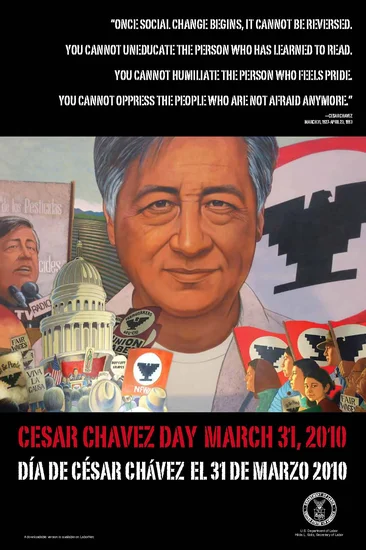
The United States observes Cesar Chavez Day, honoring the labor leader who championed farm workers’ rights. This federal commemorative day celebrates his nonviolent activism and dedication to social justice.
Many states recognize this day with educational programs about workers’ rights and civil rights history. The observance continues Chavez’s legacy of fighting for dignity and fair treatment for all workers.
International Transgender Day of Visibility

International Transgender Day of Visibility raises awareness about transgender people and the discrimination they face worldwide. This annual observance celebrates transgender individuals and advocates for their rights.
The day promotes education and understanding while highlighting ongoing challenges facing transgender communities. Activists use this platform to call for legal protections and social acceptance.
Freedom Day in Malta

Malta celebrates Freedom Day, commemorating the withdrawal of British forces from the island nation. This national holiday marks Malta’s achievement of true independence and sovereignty.
The observance includes official ceremonies and cultural events throughout the country. Maltese citizens celebrate their nation’s journey from colonial rule to full independence and European Union membership.
